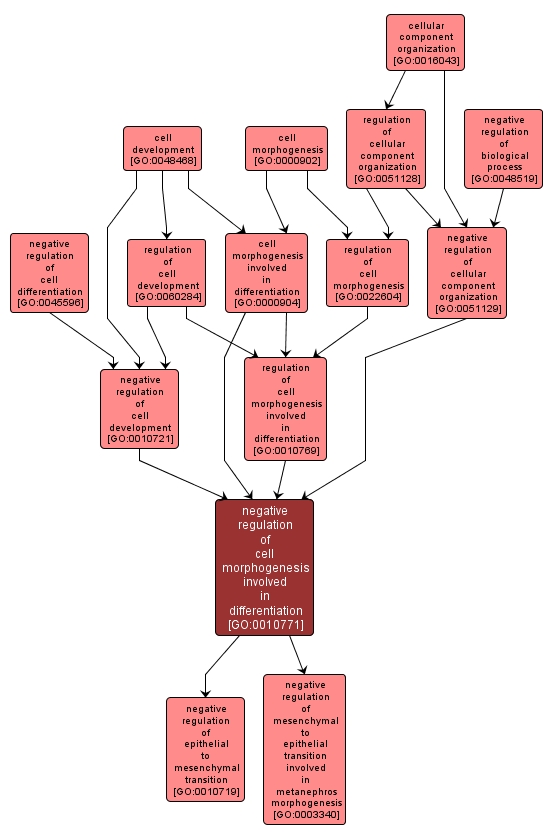| Desc: |
Any process that decreases the frequency, rate or extent of cell morphogenesis contributing to cell differentiation. Cell morphogenesis involved in differentiation is the change in form (cell shape and size) that occurs when relatively unspecialized cells acquire specialized structural and/or functional features that characterize the cells, tissues, or organs of the mature organism or some other relatively stable phase of the organism's life history. |














